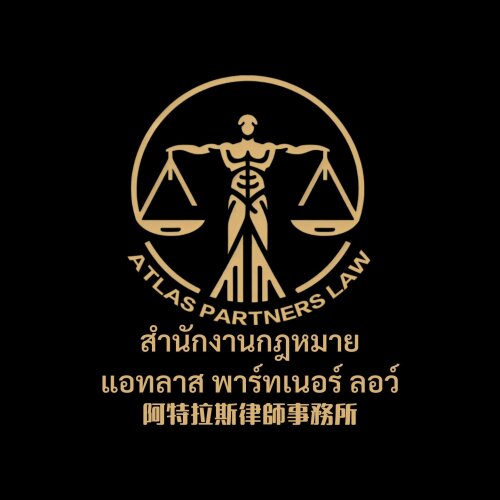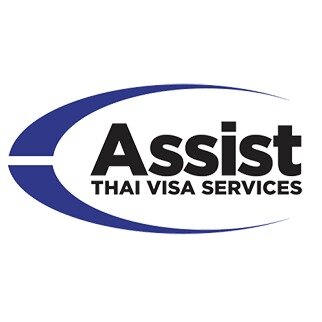Best Citizenship Lawyers in Chiang Mai
Share your needs with us, get contacted by law firms.
Free. Takes 2 min.
List of the best lawyers in Chiang Mai, Thailand
Legal guides written by SIAM LEGAL INTERNATIONAL:
- Defamation Laws in Thailand: Criminal Charges and Civil Suits
- The State of Thailand’s Long-Term Resident (LTR) Visa Program in 2025
- The Penalties Of Not Filing Your Income Tax Return As A Foreigner In Thailand
Thailand Citizenship Legal Articles
Browse our 1 legal article about Citizenship in Thailand written by expert lawyers.
- Thailand Elite Visa for US Citizens
- If you’re looking to move to Thailand from the United States, then the Thailand Elite Visa for US Citizens is the most convenient and rewarding option. This is a long-term privilege entry visa granted to members of the Thailand Privilege program, which offers four distinct membership packages offering stays of... Read more →
About Citizenship Law in Chiang Mai, Thailand
Citizenship law in Chiang Mai, Thailand, is governed by the Thai Nationality Act, which applies uniformly throughout the country, including Chiang Mai. The law outlines various pathways to obtaining Thai citizenship, including birth, naturalization, and marriage to a Thai citizen. Foreign nationals residing in Chiang Mai or planning to do so must navigate these laws to understand their rights and obligations concerning citizenship status.
Why You May Need a Lawyer
There are several situations where legal assistance may be essential when dealing with citizenship issues in Chiang Mai:
- Understanding eligibility for citizenship through naturalization or marriage.
- Navigating complex paperwork and legal procedures associated with applying for citizenship.
- Assistance with dual citizenship issues, especially for individuals from countries that may not allow it.
- Support in dealing with residency requirements and maintaining legal status.
- Defending against deportation if one's citizenship or residency status is challenged.
- Interpreting the implications of Thailand’s nationality laws for families with children born to Thai and foreign parents.
- Assistance in restoring or renouncing citizenship, if necessary.
Local Laws Overview
The key aspects of local laws related to citizenship in Chiang Mai include:
- Thai Nationality Act: This is the primary legislation that outlines the criteria and processes for acquiring Thai citizenship by birth, descent, marriage, or naturalization.
- Residency Requirements: To apply for citizenship through naturalization, applicants must typically have residency status for a minimum of five consecutive years and hold a permanent residence permit.
- Language and Cultural Knowledge: Applicants for naturalization are required to demonstrate knowledge of the Thai language and culture.
- Dual Citizenship: Thailand does not officially recognize dual citizenship, although exceptions exist, particularly concerning citizenship acquired by birth to Thai and foreign parents.
Frequently Asked Questions
What are the basic eligibility requirements for Thai citizenship through naturalization?
The basic requirements include having a permanent residency status, living in Thailand for at least five consecutive years, being able to speak Thai, and demonstrating good conduct.
Can foreigners apply for Thai citizenship if they are married to a Thai national?
Yes, foreign nationals married to Thai citizens may apply for citizenship, although this typically involves fulfilling separate residency and financial criteria specific to spousal applicants.
What documents are necessary for the citizenship application process?
The required documents generally include proof of residence, marriage certificate (if applicable), proof of income, criminal record check, language proficiency, and other personal identification documents.
How long does the process of obtaining Thai citizenship usually take?
The process can take several years, with the initial application phase lasting up to a year and subsequent government reviews extending the timeline. Patience and thorough preparation are essential.
Are children born in Chiang Mai to foreign parents automatically granted Thai citizenship?
No, children born to foreign parents are not automatically granted Thai citizenship unless at least one parent has Thai nationality or has completed the process of becoming a Thai citizen.
Can one retain their original nationality after becoming a Thai citizen?
Thailand generally does not recognize dual citizenship unless specific exemptions apply. It's advisable to consult with the embassies or consulates of both countries involved.
Is it necessary to speak Thai fluently to become a citizen?
While fluency is not required, applicants should demonstrate a reasonable level of proficiency in Thai to fulfill the language criterion set by the authorities.
Are there specific financial requirements to apply for Thai citizenship?
Yes, applicants often need to demonstrate a certain level of financial security, including consistent income and financial stability, to establish their ability to reside and support themselves in Thailand.
Where can I find legal assistance or support in Chiang Mai?
Chiang Mai hosts several law firms and legal advisors specializing in immigration and nationality law. It's essential to choose a reputable firm with experience in citizenship cases.
What happens if my application for Thai citizenship is denied?
If an application is denied, individuals typically have the opportunity to appeal the decision or reapply, often with additional documentation or clarification as requested by the authorities.
Additional Resources
Consider reaching out to the following resources for further assistance:
- Immigration Bureau: For official information and help with application procedures.
- Ministry of Foreign Affairs of Thailand: Provides resources about nationality law and citizenship applications.
- Local Law Firms with Citizenship Expertise: Engaging a local attorney can provide valuable insights and guide one through the legal intricacies.
- Thai Embassy or Consulate: For foreign nationals seeking dual citizenship information and assistance with related queries.
Next Steps
If you are considering applying for Thai citizenship in Chiang Mai, the first step is to consult with a legal expert experienced in Thai nationality law. Such professionals will help evaluate your eligibility, prepare necessary documents, and guide you through the complex legal landscape. Consider scheduling an initial consultation to get a clear understanding of your situation and the specific steps you need to undertake.
Lawzana helps you find the best lawyers and law firms in Chiang Mai through a curated and pre-screened list of qualified legal professionals. Our platform offers rankings and detailed profiles of attorneys and law firms, allowing you to compare based on practice areas, including Citizenship, experience, and client feedback.
Each profile includes a description of the firm's areas of practice, client reviews, team members and partners, year of establishment, spoken languages, office locations, contact information, social media presence, and any published articles or resources. Most firms on our platform speak English and are experienced in both local and international legal matters.
Get a quote from top-rated law firms in Chiang Mai, Thailand — quickly, securely, and without unnecessary hassle.
Disclaimer:
The information provided on this page is for general informational purposes only and does not constitute legal advice. While we strive to ensure the accuracy and relevance of the content, legal information may change over time, and interpretations of the law can vary. You should always consult with a qualified legal professional for advice specific to your situation.
We disclaim all liability for actions taken or not taken based on the content of this page. If you believe any information is incorrect or outdated, please contact us, and we will review and update it where appropriate.















